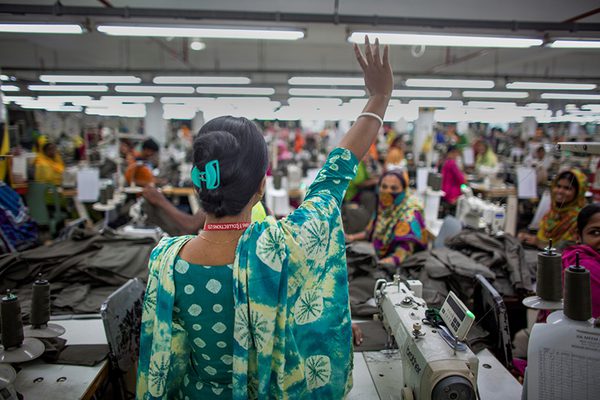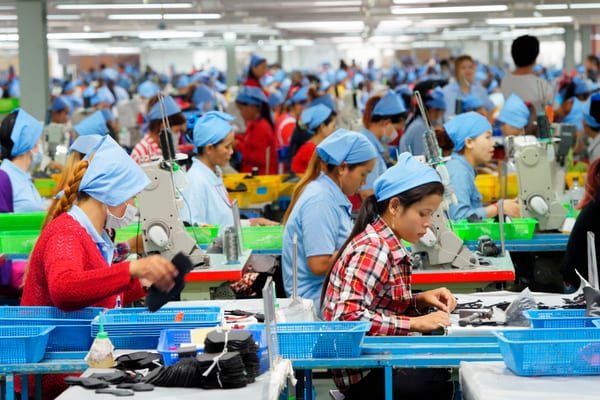What guards the guardians: lessons from the Chiquita case
13 August 2024
A jury in Florida recently reached a momentous verdict in the history of the business and human rights agenda. Chiquita, the brand synonymous with bananas, was found liable under US domestic law principles of ‘negligence’ and ‘wrongful death’ as well as Colombian principles of tort liability, for killings that took place in Colombia in the 1990s.
This is a significant development, because it has been rare for victims or survivors to hold companies legally accountable for harms they have suffered, particularly when they are not from the country where the company is headquartered. Such cases are often not admitted in the first instance by home country courts, since the abuses have occurred in the foreign host country. And the United States Supreme Court has narrowed the scope of the Alien Tort Statute, which litigants relied on earlier. To that extent, the Chiquita case, argued in a US court because the abuses occurred in Colombia at a company that was the subsidiary of a US corporation, is noteworthy. More such cases are likely, and Chiquita will appeal this verdict.
In this case, families of eight men who were killed by right-wing paramilitary forces known as Autodefensas Unidas de Colombia (AUC, or the United Self-Defence Forces of Colombia) were awarded damages amounting to $38 million. The US Government designated AUC as a terrorist organisation in 2001, but Chiquita continued to pay a ‘tax’ to the AUC so that it could continue to operate without interference. AUC, in turn, was responsible for widespread violence in Colombia, typically targeted against its arch-enemy, Fuerzas Armadas Revolucionarias de Colombia (FARC, or the Revolutionary Armed Forces of Colombia).
AUC managed to expel FARC from the area surrounding Banadex, a Chiquita subsidiary, and wanted to be paid, and Chiquita obliged, paying AUC nearly $850,000 from 1997-2004 on more than 50 occasions. Chiquita sold the operations in 2004, but continued to buy bananas from the new owners.
Many argued that Chiquita’s actions were ‘the only way’ to do business in a difficult country. Chiquita, in fact, said it paid AUC under duress, as it had no other choice. The total amount it paid AUC was about $1.7 million, through intermediaries as well as direct cash payments. Chiquita expressed regret over the tragedy, but insisted there was no legal basis to hold the company accountable.
The Florida jury disagreed. In fact, Chiquita had already admitted it was wrong, had paid $25 million in fines to the US Justice Department, pleading guilty over charges that it paid AUC illegally. It also brought expatriate employees back to the US so they could not be prosecuted in Colombia. In their guilty plea in 2007, Chiquita said it knew it was making the payments and that those were illegal. External counsel advised not to make the payments. Later, the Colombian government sought the extradition of US executives, but did not succeed. The Florida verdict would at least offer some compensation to the families who lost loved ones. Importantly, the Florida case is not the only one. This was a ‘bellwether’ case, meaning it is the first of many, and victims’ lawyers say more than a thousand other claims will now proceed. To that extent, the Florida verdict sets a precedent, though Chiquita will appeal, and it is likely that there will be an out-of-court settlement at some point.
Chiquita has had a controversial past in Colombia. Once known as United Fruit Company, it had hostile relations with trade unions, and in 1928, security forces killed striking workers, an episode that is part of the gripping climax of the Nobel laureate Gabriel Garcia Marquez’s novel, One Hundred Years of Solitude. Another Nobel laureate, the Chilean poet Pablo Neruda, wrote a poem in 1950 critical of the conduct of United Fruit and other companies.
In the annals of cases involving security forces—private or public, legitimate or armed groups—acting on behalf of companies and their civilian victims, this case’s outcome is rare. Other cases, where victims have sought justice, have not been successful. For example, when the Presbyterian Church of Sudan sued the Canadian oil company Talisman Energy in the United States, under the Alien Tort Statute, because Talisman benefited from the actions of Sudanese armed forces, even though the court was sympathetic, the case was not admitted. More recently, litigants seeking justice over the unlawful executions of Ken Saro-Wiwa and other Ogoni activists in Nigeria in 1995, failed in their attempt to hold Shell accountable, when the US Supreme Court ruled against the plaintiffs. The US Supreme Court has, over the years, sharply reduced the applicability of the Alien Tort Statute in cases that involve crimes that occur outside the US and involve non-American companies or entities. Litigants sought relief under the ATS because they did not expect justice in their own jurisdiction (such as Sudan or Nigeria, in this case) and expected the expansive reach of the ATS as an effective remedy.
The Chiquita case is different, as it did not arise out of ATS, but other existing US laws dealing with negligence and wrongful death. As Marco Simons of Earth Rights International – the environmental and human rights organization that was among the litigators in this case points out in our podcast accompanying this blog, U.S. courts fairly routinely find themselves needing to apply the law of another country, which is not a barrier to bringing a lawsuit in the United States. That is an important distinction, but it does not offer similar relief in other instances to victims when the companies are not American.
Companies frequently invoke the doctrine of forum non conveniens to prevent cases against parent corporations from being tried in home jurisdictions. Claiming that the host country is the appropriate forum, they usually succeed in convincing courts to send cases back to the countries where the abuses occurred. While a legitimate strategy, and in an ideal world makes sense, victims are rightly concerned that they may not get justice in their own countries, because multinational companies are powerful, and host governments may be reluctant to antagonise foreign investors by allowing such cases to be tried.
Trying such cases in the countries where companies are headquartered also poses serious dilemmas, including the difficulty of obtaining all evidence, the cost of bringing witnesses to testify, and lawyers’ and judges’ unfamiliarity with the ground reality. However, litigants have had some success. In recent years, cases involving Shell in the Netherlands over oil pollution in Nigeria, and Vedanta concerning claims by villagers in Zambia made before a UK court, have been allowed to proceed. This year, the French Supreme Court confirmed charges of complicity in Syria against Lafarge Holcim, the cement manufacturer, and a Swedish court is hearing a case against former senior executives of Lundin, over its possible links with war crimes in Sudan.
From the perspective of justice for victims, these are important developments, for they may force companies to undertake more rigorous and heightened due diligence while operating in conflict-affected and high risk areas. The warning signs, or red flags, have been known for a long time. An early IHRB report, From Red to Green Flags, outlined ways companies can seek to operate responsibly in high-risk areas.
International humanitarian law, provisions of which apply to all actors in, or affected by armed conflict, are the starting point for all companies facing such situation, as are the UN’s basic principles about the use of force and firearms by law enforcement officials. A number of other standards and tools are also relevant, including the UN Guiding Principles on Business and Human Rights, particularly principles 7 and 23, which deal with conflict and operational contexts. The Voluntary Principles for Security and Human Rights emphasise risk assessment in the extractive sector. And ICoCA, which sets rules and standards for the private security sector, is based on a code of conduct for its members that can guide policies and actions by companies.
All these standards are necessary for companies to know how to operate in high-risk areas. These are by no means sufficient. While the Chiquita verdict offers hope to the Colombian families, it should be recognised that each case is different. It is a reminder that all companies need to conduct rigorous due diligence, including ongoing analysis of conflicts drawn from frequent, open, and transparent consultations with affected communities and local human rights groups. Clear policies and systems are needed that incentivise good behaviour and disincentivise recklessness or conduct which heightens risks. These are components that can reduce the likelihood of situations like Chiquita faced in Colombia. Forewarned are forearmed.
Image credit: Andriy Blokhin - stock.adobe.com




